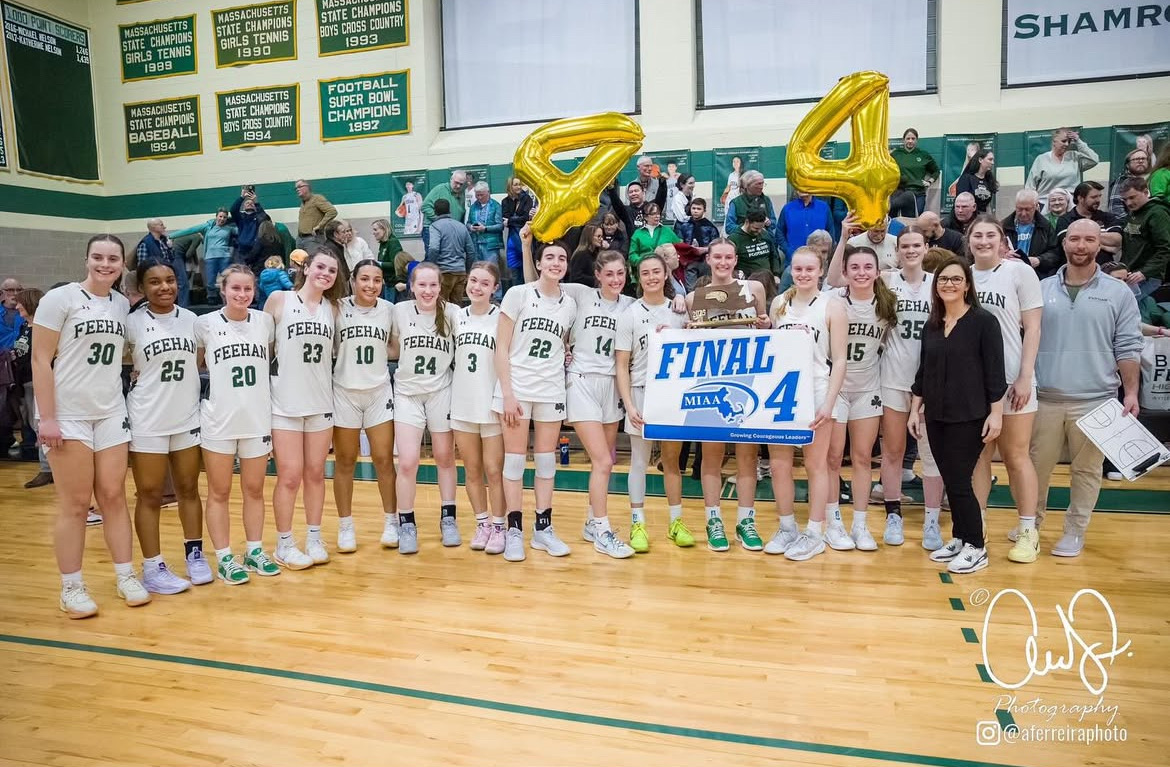President Biden’s Supreme Court Nominee
March 30, 2022
Author’s Note: This article was submitted for publication on March 20, 2022. By the time it is published, there will be more recent news about this, as it is an evolving story. Nevertheless, this article still gives important background information on the nomination process.
On Thursday, January 27, United States Supreme Court Justice Stephen Breyer announced his retirement, having served for nearly 28 years on the Supreme Court. Nominated by Bill Clinton in 1994, the 83-year-old, who is the oldest justice on the court, announced he would be retiring at the end of the court’s current session when it begins its summer recess in June.
Since Breyer is a liberal justice, any nomination by President Joe Biden would not change the balance of the court, which has 6 conservative justices and 3 liberal justices. While campaigning for the South Carolina Democratic primary in 2020, Biden had pledged to nominate a black woman to the Supreme Court to make it look more diverse. No black woman has ever served on the Supreme Court before, making this nomination historic. The first black justice, Thurgood Marshall, joined the court in 1967, and he was succeeded by another black Justice, Clarence Thomas, in 1991. Sandra Day O’Connor, the first female justice, joined the court in 1981. Thomas is the only black justice serving on the Supreme Court today, and Sonia Sotomayor, Elena Kagan, and Amy Coney Barrett are the three currently serving female justices. Sotomayor, a Latina, is the only woman of color to have served on the court. Some Republicans criticized Biden’s decision to promise to nominate a black woman to the court during his campaign, since it would limit the scope of his nominee candidates, although Republican Senate Minority Leader Mitch McConnell pointed out that Trump pledged to nominate a woman to the court before Barrett’s nomination. Ronald Reagan had also pledged to nominate a woman to the Supreme Court during his 1980 presidential campaign, and he would end up nominating O’Connor.
The three main judges Biden considered for the nomination were U.S. Court of Appeals Judge Ketanji Brown Jackson from the District of Columbia, U.S. District Judge J. Michelle Childs from South Carolina, and California Supreme Court Justice Leondra Kruger. Childs was supported by House Majority Whip Jim Clyburn, a close Biden ally, and Republican Senator Lindsey Graham; both men are from South Carolina. Kruger was considered to be the most moderate of the three women. In the end, Ketanji Brown Jackson was the frontrunner for the nomination, and Biden announced her nomination to the court on February 25. Remarking on her nomination, Jackson said, “My life has been blessed beyond measure, and I do know that one can only come this far by faith.”
Ketanji Brown was born in D.C. in 1970 but moved to Florida as a child, attending Miami Palmetto High School. (Interestingly, Jeff Bezos attended that same school, although not simultaneously with her.) She graduated from Harvard College in 1992 magna cum laude (“with great praise/distinction”) and graduated from Harvard Law School in 1996 cum laude (“with distinction”). She met her future husband, Patrick Jackson, at Harvard, and they have two daughters. Jackson held a variety of legal jobs in the next 17 years (until 2013), working at four elite law firms and serving two stints with the U.S. Sentencing Commission. She also served three federal clerkships, including to a federal Massachusetts judge and, more importantly, as a clerk for Supreme Court justice Stephen Breyer, the justice she could end up replacing. Jackson also served as a public defender for two years; if confirmed to the court, she would become the first justice with public defense experience since Thurgood Marshall.
Under the Obama administration, Jackson was unanimously confirmed to be vice chair of the Sentencing Commission in 2010. In 2013, Obama nominated her to serve as a U.S. district court in D.C., and she was confirmed by a voice vote. Interestingly, Jackson is related by marriage to Paul Ryan, who was Speaker of the House at that time and ran for vice president against Obama and Biden in 2012. Jackson’s tenure on the court, from 2013 to 2021, included multiple notable rulings, some of which were against those of former President Trump.
In 2021, Jackson was nominated to the D.C. Circuit Court by President Joe Biden. The D.C. Circuit Court, also dubbed “the second-highest court in the land,” has had many notable justices serve on it, including current Supreme Court Justices John Roberts (Chief Justice), Clarence Thomas, and Brett Kavanaugh, as well as former Justices Antonin Scalia and Ruth Bader Ginsburg and Obama Supreme Court nominee and current Attorney General Merrick Garland. Upon Garland’s nomination to be Attorney General, Jackson was nominated to fill his spot on the D.C. Circuit Court. On June 14, 2021, she was confirmed by the Senate by a vote of 53-44, with Republicans Susan Collins (Maine), Lisa Murkowski (Alaska), and Lindsey Graham (South Carolina) voting for her, along with all Democratic senators.
Democrats would not likely need any Republican support to confirm Jackson to the Court, as they have a majority with Vice President Kamala Harris as the tie breaking vote in a 50-50 Senate. However, President Biden and Senate Judiciary Committee Chairman Dick Durbin (D-Illinois) are looking to make this a bipartisan confirmation vote, especially after the tense nomination processes of Neil Gorsuch, Brett Kavanaugh, and Amy Coney Barrett (the last two processes being especially contentious). Supreme Court nominations used to be largely bipartisan, but that has greatly changed. Susan Collins seems to be the most likely Republican to vote in favor of Jackson’s nomination; Graham preferred J. Michelle Childs instead of Jackson (although he has recently gone quiet on his potential vote), and Murkowski is facing a tough re-election battle against a fellow Republican.
Jackson seems to have made a good impression on multiple Republican senators she has met, but this will not likely translate into an increase in Republican votes for her; no Republican senator has publicly supported her nomination so far. Her confirmation hearings are set to begin on March 21 and last four days; she will appear in front of the Senate for the first three days. She appeared in front of the same exact senators during her hearing for the D.C. Circuit Court. After a week or so, the Senate Judiciary Committee should hold a vote on the nomination, which would move to the full Senate if approved. Most democrats, using Amy Coney Barrett’s quick 2020 confirmation as a guideline, hope to finish the confirmation process before they leave for Easter recess on April 11.
Sources:
https://www.scotusblog.com/2022/02/profile-of-a-potential-nominee-ketanji-brown-jackson/
https://www.npr.org/2022/02/14/1078086453/ketanji-brown-jackson-supreme-court-biden
https://apnews.com/article/stephen-breyer-supreme-court-retirement-2f9c1f5da824e3b1ef25964205131fff


















